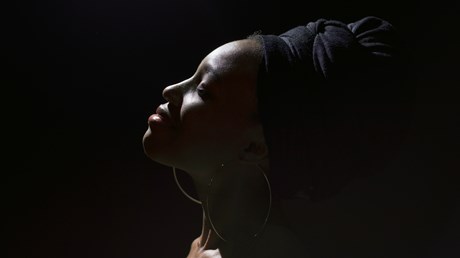The African religious imagination already anticipates Christ.

It’s ironic that as I crossed the Walt Whitman Bridge to attend an urban apologetics conference in Philadelphia I encountered the very religious pluralism that makes conferences such as these a necessity. As my weathered SUV pulled up to the stoplight, I could see the Marcus Garvey–inspired Pan-African flag pirouetting in the wind, and I could hear the amplified, yet muffled, sound of a man’s raspy voice through a bullhorn. He, along with a group of other young men and women, stood on the median with their faces contorted like clenched fists yelling, “Black Power, Black Power,” while others bellowed, “the black man is God!” at passing pedestrians and vehicles.
At the next intersection, a well-groomed man in a fitted black suit, with a tightly-knotted black bow tie, walked up and down the dividing line of the highway selling bean pies and handing out Nation of Islam literature, an entrepreneurial practice that has existed since the early 1930s.
Finally, after parking and inserting some quarters into the meter, a voice behind me yelled: “As-Salaam-Alaikum” (which means “peace be unto you”). I turned around and an older Muslim man with a dyed, carrot-color beard beckoned me over to his table to see his merchandise. “Are you interested in buying some of these organic, scented body oils, beloved? I have ‘Black Coconut,’ ‘China Musk,’ and ‘Arabian Sandalwood.’” After listening to his sales pitch, I bought two scented oils for $10 before heading into the conference.
Traditional African Religions Have an Appeal
As an inner-city dweller, occurrences like these transpire on a consistent basis because our cities are hubs of …
Source: Christianity Today Most Read